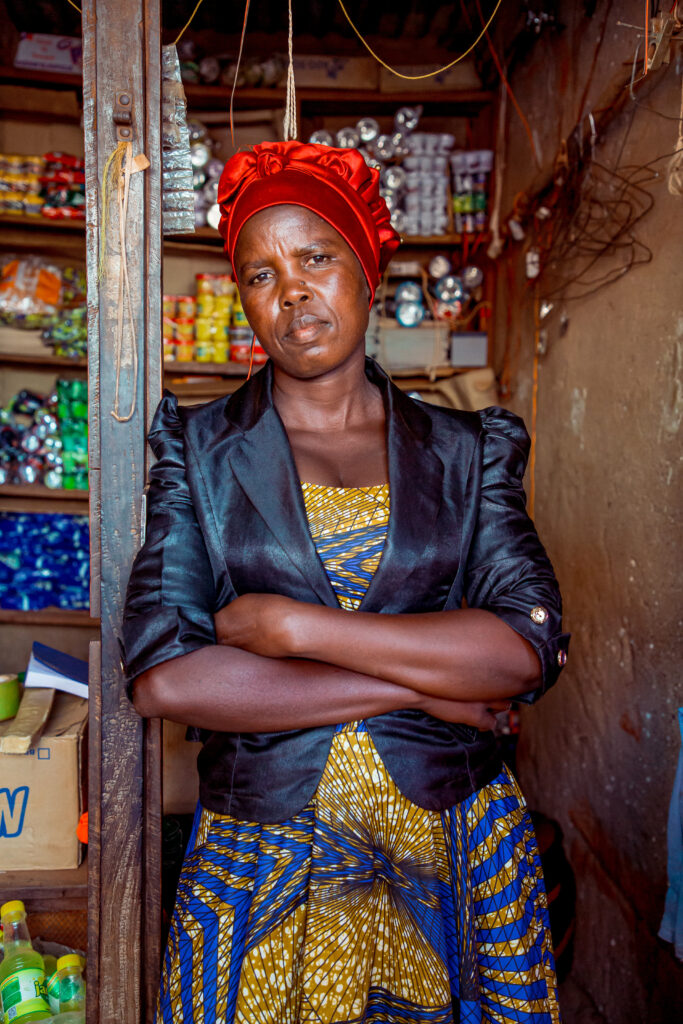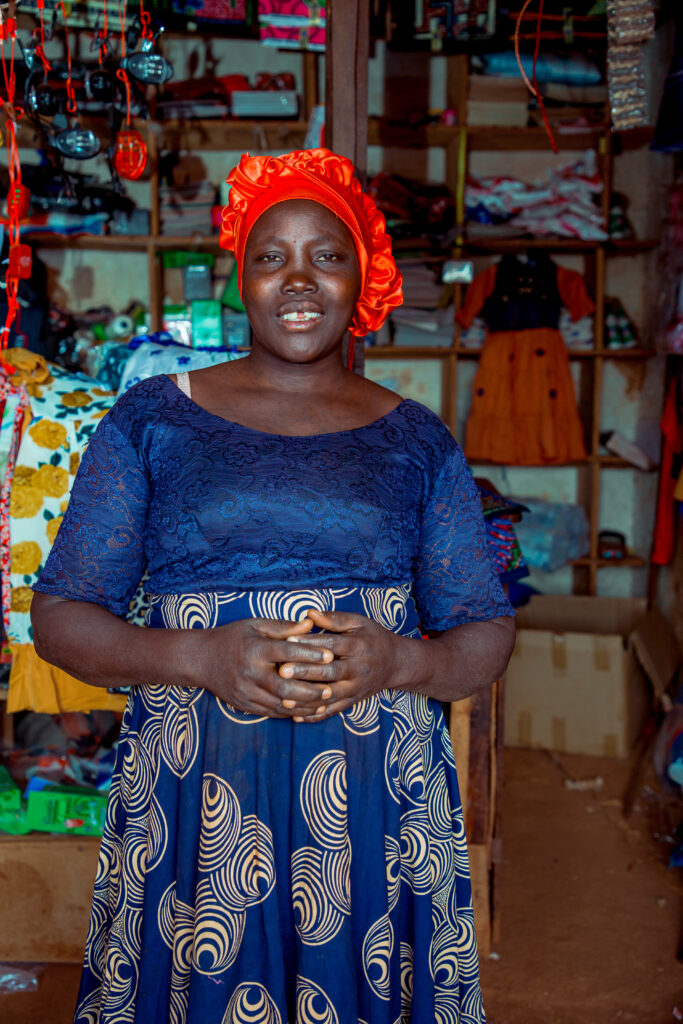Paulina Ndimbangana is a small business owner in Kigadye village, Kigoma. She understands firsthand the significant impact that access to clean water can have on livelihoods.

Paulina has seen her business grow due to easy access to clean and safe water brought by WASH facilities in Kigoma. Photo: UNICEF Tanzania
Before the village had piped water, Paulina faced daily struggles. She used to walk long distances to fetch water, often spending hours at the well waiting for it to fill up.
These exhausting and time-consuming trips meant that her retail shop at the Kigadye market often opened late or sometimes not at all. The delays and missed business hours affected the growth of her business, limiting her ability to generate a stable income.
Water improves quaility of life
Today, Paulina does not have to undertake long journeys for a basic necessity. Thanks to the Grundfos Foundation in partnership with UNICEF, water is available in the village.
Paulina can access clean and safe water close to her home. She now has time to open her shop on time, serve her customers consistently, and dedicate more attention to expanding her business.
This is also confirmed by Paulina’s colleague Scola, a businesswoman in Kigoma, Tanzania, who has seen her business grow due to easy access to clean and safe water brought by WASH facilities in Kigoma.
The availability of water has not only improved her business but has also affected the local economy. Other small traders, similarly, burdened by the lack of water, are now seeing their businesses flourish.
Others take part in local savings groups and table banking, which contributes to their economic empowerment. Furthermore, the money previously spent on treating waterborne illnesses in their children is now being used for other productive purposes.
The overall quality of lifee has significantly improved, with schools, health facilities, households, and businesses all benefiting from the availability of clean drinking water. The burden on women has been greatly reduced, enabling them to pursue opportunities that were once out of reach.

Paulina’s colleague, Scola, a businesswoman in Kigoma, Tanzania, has seen her business grow due to easy access to clean and safe water brought by WASH facilities in Kigoma. Photo: UNICEF Tanzania

